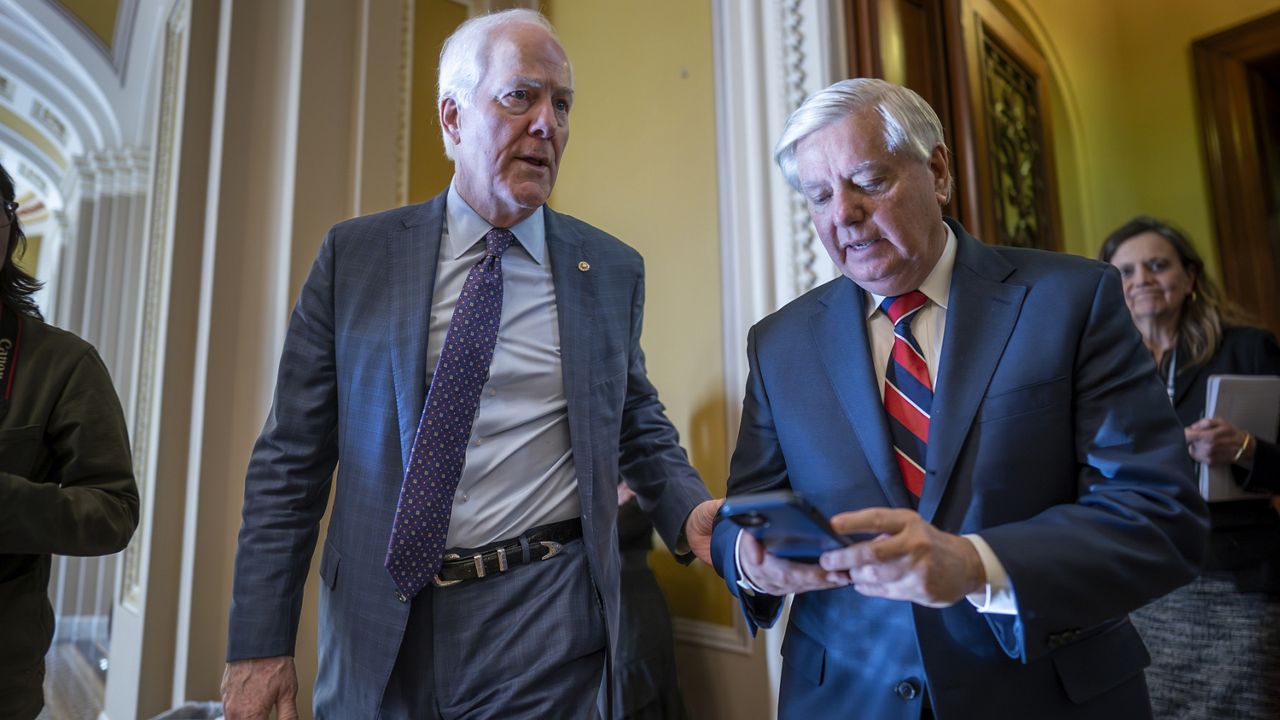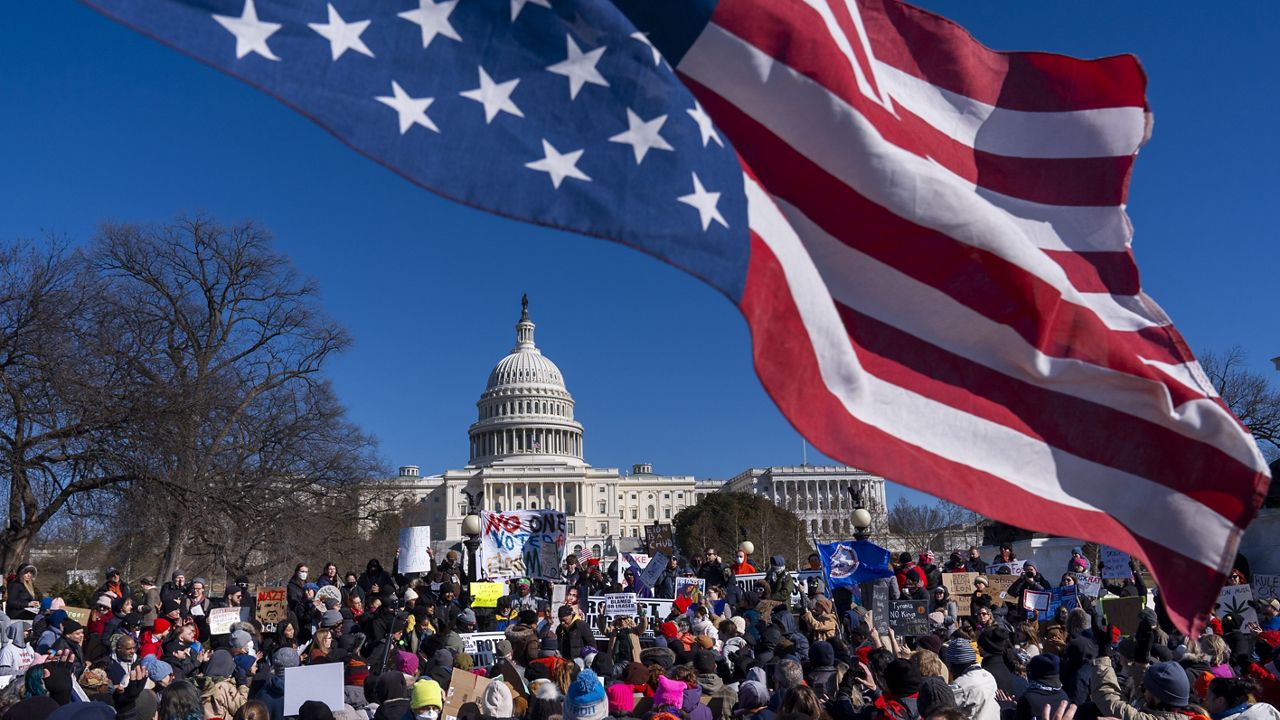WASHINGTON — Republicans are wasting little time trying to saddle Vice President Kamala Harris with President Joe Biden’s political liabilities. The effort is centered on blaming Harris for the surge of migrants entering the U.S., and many GOP members have referred to Harris as Biden’s “border czar.” But some immigration experts believe the portrayal is not accurate.
Rep. Tony Gonzales, R-San Antonio, has taken colleagues on many trips to his sprawling border district in Texas. The Texas Republican told Spectrum News he is disappointed Harris hasn’t visited as much.
“She’s not there. She’s absent. I mean, she just does not, has not put any energy or effort into solving the problem,” Gonzales said.
Harris traveled to El Paso in June 2021, a few months after Biden tasked her to address the root causes of migration from Honduras, Guatemala and El Salvador. White House officials emphasized it was a diplomatic role. The overwhelming majority of migrants surging into the U.S. begin their journeys in those three countries.
“I was encouraged by it, and it’s important that we visit some of these countries and figure out, hey, what is it going to take in order for people to stay in their home country? And also, how do you change the conversation from illegal immigration to legal immigration? How do we encourage legal route? She accomplished none of that,” Gonzales said.
Biden abandoned his reelection campaign and Harris has become his all-but-certain replacement as the Democrats’ nominee. Since then, Republicans rushed to define Harris with two words: border czar.
“She was named ‘the border czar,’” Gov. Greg Abbott, R-Texas, said in an interview with Spectrum News. “Bottom line is this, she was given a top priority assignment, and that is to do something about illegal immigration.”
But some immigration experts believe the portrayal is not accurate.
“I don’t think that’s exactly fair. She was never named to be the border czar, she was never tasked with handling how migrants are treated at the border. She wasn’t tasked with trying to improve border security. All of those were really the responsibility of the (Department of Homeland Security) secretary,” Julia Gelatt, the associate director of the U.S. immigration policy program at the Migration Policy Institute, said.
White House officials tell Spectrum News that Harris’ work to address the root causes of migration led to more than $5.2 billion in investments in Central America. The key pillars of Harris' “Root Causes Strategy” are to spur economic development, combat corruption, ensure human rights are protected, reduce violent crime and address gender-based violence. The goal is to dampen the interest of residents in leaving.
“Addressing the root causes of migration in Central America was a way to try to help the region, but also to curb migration from those countries to the United States. What the approach entailed was finding private investment in those countries to try to spur economic development, create more jobs,” Gelatt said.
“The hope was that the U.S. could help to foster economic development, more security, more stable democratic institutions in the region, and that over time, that could slow outmigration from the region,” she continued.
Harris has said the “Root Causes Strategy” is a long-term effort.
“The problems, of course, did not occur overnight, and the solutions will not be achieved overnight. Yet we have seen short-term progress,” Harris said in March ahead of a bilateral meeting with the president of Guatemala.
But that short-term progress has not been enough to counter the attacks of Republicans in a crucial presidential election.






)
)

